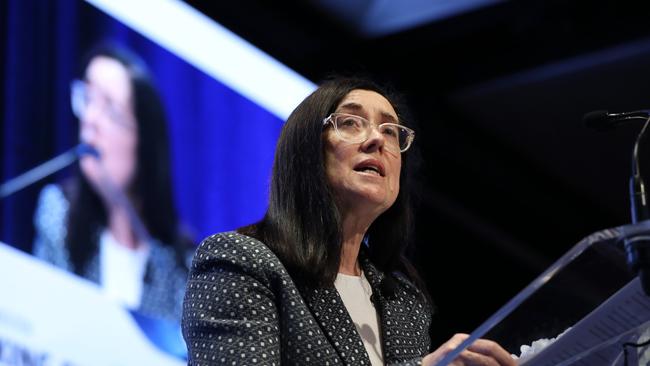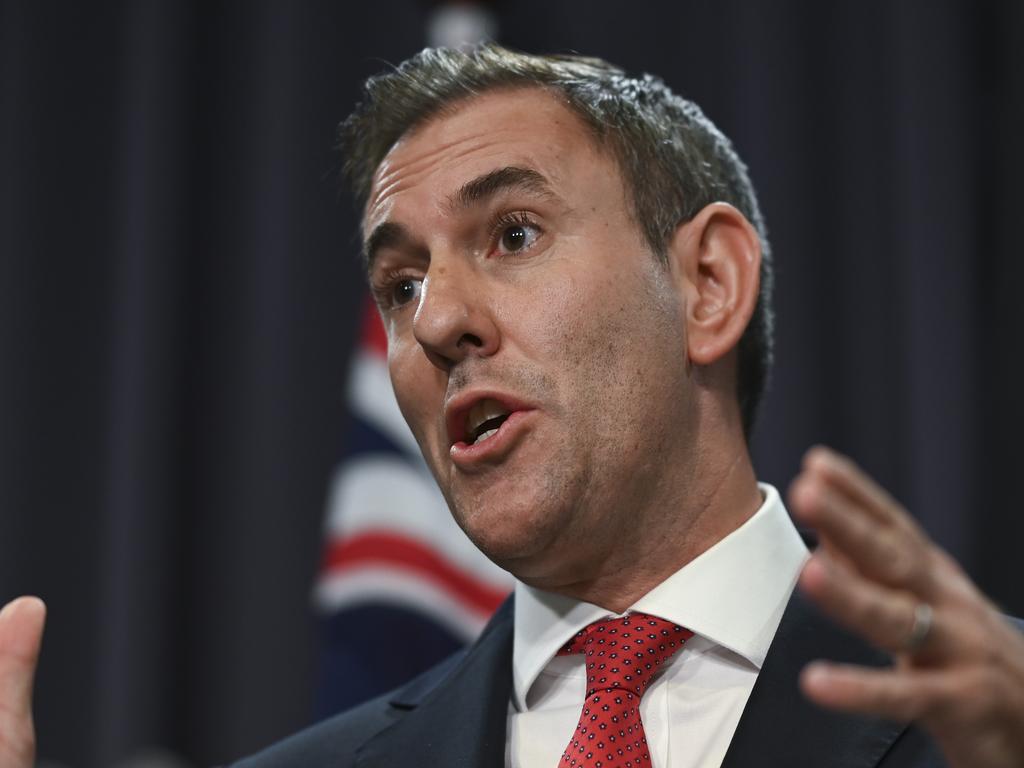Australian Competition & Consumer Commission granted new powers over mergers
Jim Chalmers has unveiled a historic set of merger reforms that will empower the ACCC to vet every proposed corporate buyout above a certain size.

Jim Chalmers has unveiled a historic set of merger reforms that will empower the competition watchdog to vet every proposed corporate buyout above a certain size, in a move the Treasurer claims will lead to lower prices and higher productivity.
The mandatory notification regime will place additional regulatory burden on businesses looking to make big acquisitions or operating in a concentrated sector, but will reduce the scope for the gaming of a system Treasury has deemed no longer fit for purpose by allowing too many potentially anti-competitive mergers to proceed unseen and unchallenged.
A better-resourced Australian Competition & Consumer Commission, under the new rules to be unveiled on Wednesday, will now act as a gatekeeper and “expert, first-instance decision-maker” on whether a proposed merger will substantially lessen competition. Firms unhappy with the decision will be able to go to the Competition Tribunal.
Rather than the current ad hoc approach to investigating mergers, the reforms will set a threshold based on the size of the transaction or combined market share to determine whether firms are required to notify the ACCC.
“This will mean that the ACCC is apprised of those mergers most likely to impact Australian consumers if they are anti-competitive, while reducing the overall compliance burden on businesses,” Treasury’s draft proposal says.
In a speech to be delivered in Sydney on Wednesday, the Treasurer will say the changes “are the biggest reforms to merger settings in almost 50 years”.
“They mean the ACCC will more efficiently and effectively target mergers that are anti-competitive while allowing mergers that are pro-competitive to proceed faster,” Dr Chalmers will say, according to a draft of the speech.
“This will bring our merger settings into the 21st century.”
In a nod to a key concern from business, the reforms will not shift the onus of proof to companies to prove the substantially more difficult argument that their mergers were not anti-competitive, as had been requested by the ACCC.
But the test that a merger does not result in a “substantial lessening of competition”, introduced in 1993, will be “clarified” to include if the deal “creates, strengthens or entrenches a position of substantial market power in any market”.
Merging businesses that surpass the market share threshold – yet to be determined by the government – will be required to pay a “cost recovery fee” of $50,000-$100,000 to fund the ACCC’s screening processes, but small businesses would be exempt.
ACCC chair Gina Cass-Gottlieb said the reforms would “benefit Australian consumers and businesses of all sizes, as well as the wider economy”.
“Higher prices, less choice and less innovation can result from weakened competition. Stronger merger laws are critical to ensure anti-competitive mergers do not proceed,” Ms Cass-Gottlieb said.
The issue of competition has exploded into the public consciousness amid often angry accusations that supermarket giants Coles and Woolworths have used their dominant positions to gouge customers amid a cost-of-living crunch.
While the big four banks have largely escaped scrutiny in recent years, the pandemic also highlighted how a lack of competition in airlines allowed Qantas to abuse its position as the “national airline” by dudding customers and profiteering in the wake of the pandemic.
The Treasurer said Australia’s competitiveness had been in decline since the 2000s, with a small number of big firms becoming even more dominant in industries ranging from retail, to finance, to utilities.
“The economic imperative for competition reform could not be clearer,” Dr Chalmers said. “Competition policy is a growth strategy. Competition makes our businesses more dynamic, more innovative and more productive, and expands our economy.
“It helps wages grow as workers move to better opportunities and businesses, raising living standards as well as productivity.
“And for consumers, competition provides more choice, better quality and cheaper prices.”
Treasury says the new rules would bring Australia into line with comparable countries such as the US and Europe. The reforms, slated to start in January 2026, may still face opposition from groups such as the Business Council of Australia, which have argued against “radical” change to a system they say “works well”.
Treasury will enter a consultation phase on draft legislation, with key decisions to be made on compulsory notification threshold, review timelines, fees and penalties for those companies that don’t abide by the new rules.
The Treasurer announced he would appoint a new commissioner with economic expertise, Philip Williams, founder of advisory firm Frontier Economics and a former Melbourne University professor.
Ms Cass-Gottlieb has said too much industry concentration led to “higher prices and less choice” for consumers, and for the regulator to be able to prevent anti-competitive mergers, “firstly we need to make sure we see them all”.







To join the conversation, please log in. Don't have an account? Register
Join the conversation, you are commenting as Logout